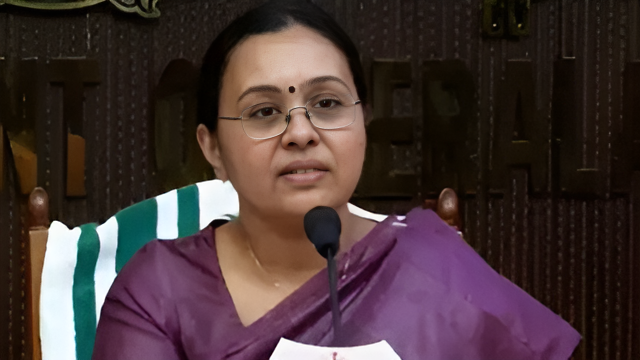
Thiruvananthapuram: To prevent amoebic encephalitis, updated guidelines based on ‘One Health’ approach have been released. A comprehensive action plan was prepared for disease prevention, diagnosis and treatment, said health minister Veena George in a statement issued on Wednesday.
The plan focuses on awareness campaigns, enhancing diagnostic capabilities, active case surveillance, environmental monitoring and hotspot mapping, treatment and drug availability and research.
It includes instructions to conduct tests for amoebic encephalitis in all patients suspected of having brain fever.
George instructed all hospitals to strictly adhere to the guidelines. Awareness should be intensified every year before the onset of summer. Health, local self-govt and education departments should coordinate to raise awareness.
Awareness should be provided to students and those interacting with water bodies. Awareness boards should be installed near pools where amoebic encephalitis was earlier reported.
The state PH lab and Thonnakkal IAV will function as apex centres for molecular and genomic diagnosis of amoebic encephalitis. PH lab started PCR testing to detect the brain infection.
The microbiology departments of Thiruvananthapuram and Kozhikode medical colleges will be developed as specialised centres for diagnosing amoebic encephalitis, said George.
State pollution control board (SPCB) and environmental science department of Kerala University prepared an action plan to address environmental factors affecting amoeba growth. Steps were taken to ensure the availability of drug miltefosine through Kerala Medical Services Corporation Ltd.
An online module on treatment of amoebic encephalitis will be available on state training site. Research will be strengthened in collaboration with the medical parasitology department of PGIMER, Chandigarh, and AVM Institute, Pondicherry.
Abiotic and biotic factors influencing the growth of free-living amoebae will be studied in collaboration with SPCB and environmental engineering department of Kerala University, said the minister.
Special caution should be exercised against amoebic encephalitis as summer approaches. Cases of amoebic encephalitis are still being reported in the state. In 2024, there were 38 cases and 8 deaths, and in 2025, there were 12 cases and 5 deaths. Early diagnosis and treatment helped save most of the patients. This disease has a global mortality rate of 97 per cent, but effective measures reduced the mortality rate in Kerala to 25 per cent, she added.